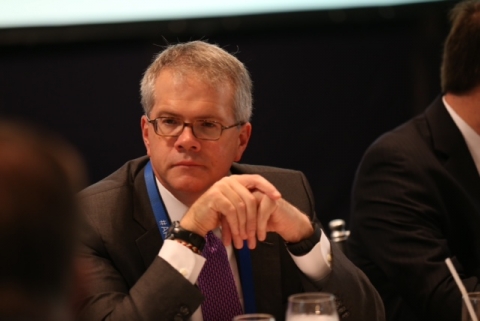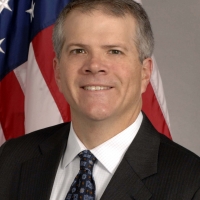Dec092015
Posted at 11:46 AM
Post by Bruce H. Andrews
All of us have a shared responsibility to address threats to our long-term competitiveness. Corruption is one of the most serious threats to our businesses in international trade.
As we observe International Anticorruption Day, it is clear that corruption still erodes public trust and hinders global economic growth – and the international community must continue to fight it aggressively. The world has now recognized that corruption is no longer the “cost of doing business,” but a serious crime.
As President Obama has said, “corruption is not simply immoral…it siphons off billions of dollars from the public and private sectors that could be used to feed children or build schools, or build infrastructure that promotes development. It also promotes economic inequality. It facilitates human rights abuses. It fuels organized crime, and terrorism, and ultimately instability.” This devastating effect on both economies and businesses is why the United States continues to work with partners to combat corruption all around the world.
Although much work remains to be done, we have achieved meaningful progress in the past year in the global fight against corruption. Because of the Obama Administration’s leadership efforts and collaboration with our trading partners, the Trans-Pacific Partnership Agreement includes a historic transparency and anticorruption chapter, illustrating the crucial link between the rule of law and international trade. Through the TPP, we have an unprecedented opportunity to raise good governance standards across the Asia-Pacific, and that is one of the reasons why President Obama is committed to working with Congress to secure its approval of the TPP.
We are also leading several other efforts to attack international corruption on behalf of U.S. businesses and slowly but surely, we are effecting change around the globe. Thanks to our and other countries’ strong work at the Organization for Economic Cooperation and Development (OECD) in monitoring our respective foreign bribery laws under the OECD Antibribery Convention, we’ve been joined by major exporting countries such as Germany, the United Kingdom, Norway, Italy, Canada, the Netherlands, Switzerland, Korea and others in enforcing foreign antibribery laws.
The Obama Administration is also attacking corruption through judicial and law enforcement training; sharing of best practices on prosecutions; and capacity building, code writing, and code implementation. Increased international cooperation and enforcement of anticorruption laws is having a positive effect on the behavior of companies around the world, including through the adoption and enforcement of stronger compliance programs by our businesses as well as their competitors.
We are also expanding efforts on anticorruption in other forums like the United Nations, G-20, and the Asia-Pacific Economic Cooperation (APEC). I was in the Philippines last month for the APEC CEO Summit, where I spoke about how Commerce is leading an effort to fight corruption through the APEC Small and Medium Enterprises (SME) Working Group. The group launched a public-private business ethics initiative in 2011 to create three sets of voluntary ethics principles in the medical device, biopharmaceuticals, and construction-engineering sectors.
The APEC SME Working Group initiative is continuing its critical and important work, because smaller companies are significantly impacted by corruption. The sectoral principles now form the foundation for new codes of ethics established in each of the APEC economies. More than 1,000 individuals from all 21 APEC economies have participated in thirteen separate business ethics programs under the SME initiative, and more than 19,000 companies, of which 10,400 are SMEs, are now covered by a new code of ethics in the medical device and biopharmaceutical sectors. I look forward to seeing how our collaboration through APEC enables us to further level the playing field for companies of all sizes.
Together, we can make real strides toward putting an end to corruption and bribery, protect the integrity of our economies, and strengthen the rules that govern our trade.


